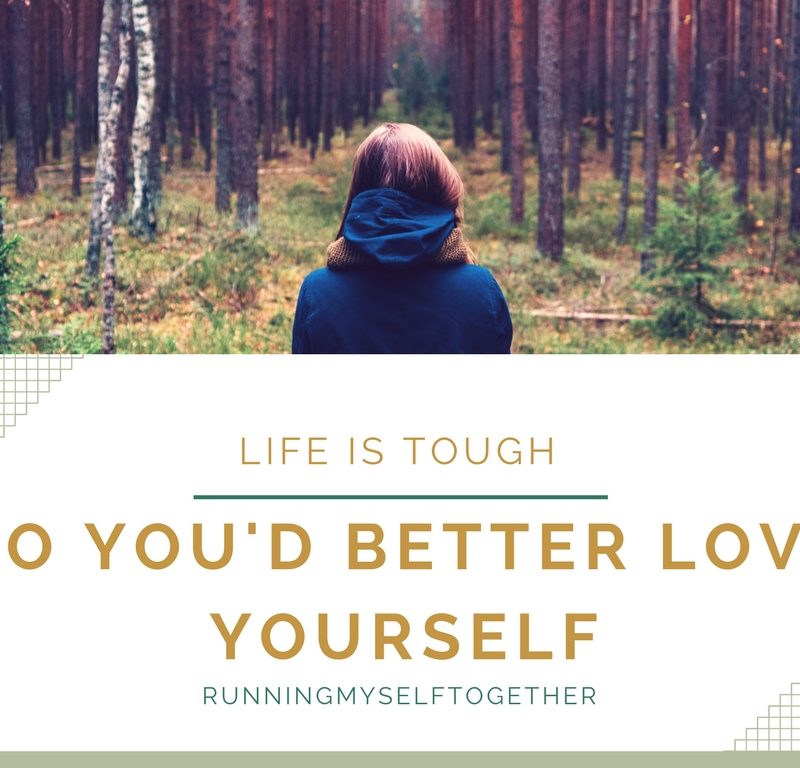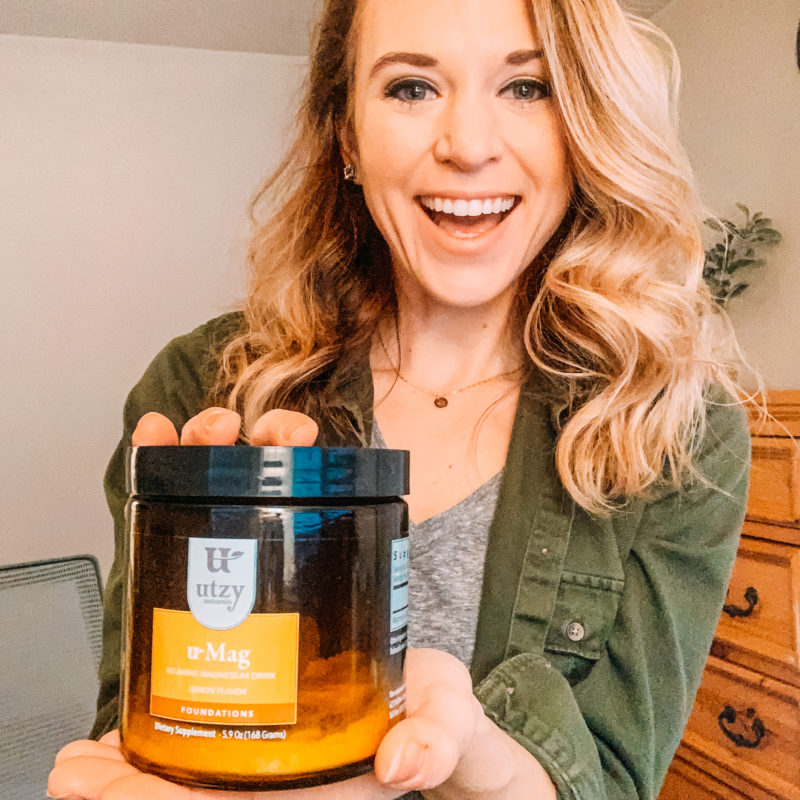If you’ve been here a while (and some info for you if you’re new), you know this blog started and continues to pioneer mental health awareness. It’s kind of my thing, you know?
If you’ve been here for a while, you also know that I strongly believe in advocating for your own health – mentally and physically. Little did I know, though, that when I would start opening up about my struggles with chronic acid reflux (aka GERD), I’d find so many of YOU who also struggle with this. And let me tell you, the struggle is real.
So, if you’re one of those people who struggles with acid reflux, I know your pain. In fact, I felt your pain every single day for years. Here’s my story on how I navigated chronic acid reflux, advocated for my health, and wound up finally getting surgery to fix this just plain awful situation.
But first, and as always, here’s a disclaimer. This is my PERSONAL experience. Your experience most likely is not the same. What I say and suggest here is not to be supplemented for proper medical advice. I am not a doctor. Always seek your doctor’s opinion and care. Surgery is not the right choice for everyone, and this is a major surgery.
What is GERD anyways?
About 5 years or so ago, I sat in front of my GI doctor as he lectured me (in a loving way, as if I were his daughter) on dating, seeing red flags in relationships, and getting the heck out when I do. I appreciated his words. I had just gotten out of a very stressful relationship that ended with a restraining order (a story for another day), and the stress from that situation had wreaked havoc on my body. I was struggling immensely with IBS and acid reflux, which is why I was there, and during that appointment had opened up to my doctor about what I’d just gone through personally.
My doctor called it, GERD, gastroesophageal reflux disease, which is a fancy way of saying persistent acid reflux and according to the Mayo Clinic, “is mild acid reflux that occurs at least twice a week, or moderate to severe acid reflux that occurs at least once a week.”
Because I was so young at the time (about 25), he chalked up my symptoms to stress and anxiety, which, well yes, absolutely contributed to what I was experiencing physically. But as the years went on, and I healed from the mental trauma of that experience and my life became much less stressful, my acid reflux got worse even while on medicine.
If it wasn’t solely a stressful situation that was causing gastro distress, what WAS causing it? Because, when I used to hear the term acid reflux, I used to think of an overweight middle-aged man in a stained jersey eating too many chicken wings and beer on game day and having to pop some tums.
That, obviously, was not me, as a healthy, active young woman who hates the way chicken wings makes her fingers all sticky. Needless to say, I didn’t match my previous mental image and I was shocked. How could I be struggling with this? I eat healthy. I work out just about every day.
The thing is, chronic acid reflux “runs” in my family. My father has it, my brother has it, my cousin has it, and I’m sure there are others in my very large family who have it, as well. So, essentially, it could be genetics, a sphincter that’s just not tight enough, and stress/anxiety. Whatever the innate reasoning, I knew I needed to get help.
My Ongoing, Painful Journey with Acid Reflux
As the years went on, I tried all sorts of different things to help. I tried over the counter medications and prescriptions. I spent time off the medication, after hearing of the negative long term side effects of PPIs. (The pain was far worse off the meds than on the meds, so I went back on them.) I spent time at urgent care, and drinking strange GI concoctions to numb my inflamed and sore throat. I listened to my doctor and limited all the usual culprits – caffeine, alcohol, red sauce, etc. – refrained from eating 3 hours before bed, continued to take my medication, reduced stress, and slept with my head elevated. All of which, at times, brought relief, but most times, did not. I also tried all sorts of supplements, like psyllium husk, aloe vera gel, DGL licorice, and the list goes on and on. All, for the most part, to no avail.
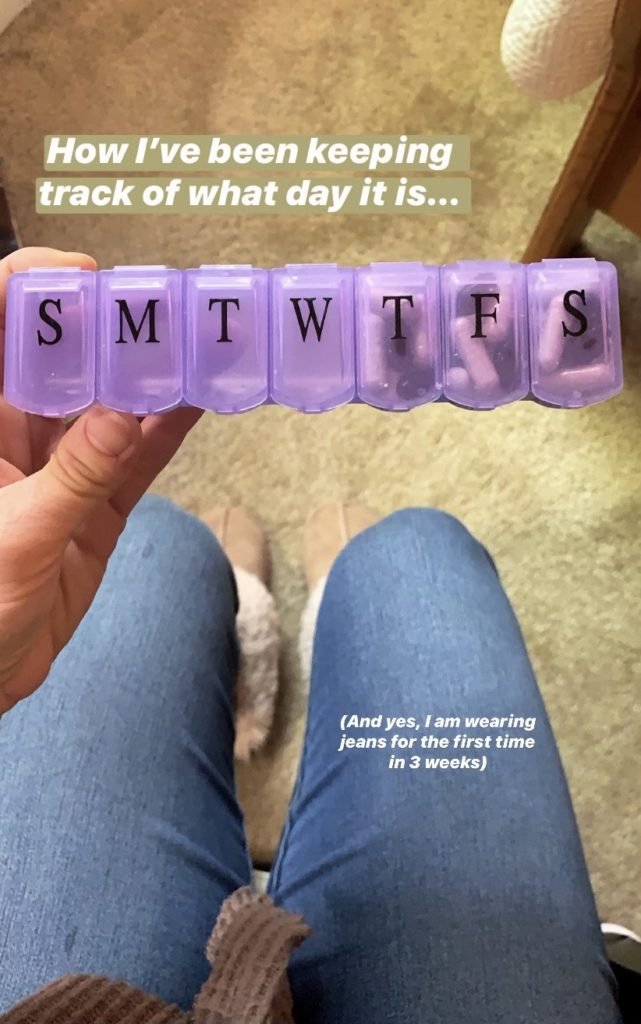
Each morning, I’d wake up burping (an acid reflux symptom), drink some water, burp some more, take my medication, and head to my workout. Depending on what I’d eaten the day before (which was always hit or miss), my workout would either go smoothly or hurt like hell. I couldn’t eat before a workout, and I had to be super careful what I would eat throughout the day if I was working out in the evening.
I became accustomed to this. This was just how I was going to have to operate in my life, which wasn’t ideal, but I could manage.
Choking
This is, until, it became hard to swallow. I distinctly remember being at a friend’s house eating some grilled chicken and having to run to the bathroom because the chicken was stuck and I couldn’t get it out.
Then, that kept happening. I brought it up to my doctor, and he said, “We have to do an endoscopy.”
Yup. We sure did.
Endoscopies, endoscopies, endoscopies
Soon after that appointment, I had two endoscopies to stretch out my esophagus, because scar tissue had built up from acid reflux. He also did some tests to make sure I didn’t have food allergies that could be causing the reflux – all was clear.
The endoscopies helped the swallowing issue, but the acid reflux persisted.
A couple years later (the beginning of 2020), I had a final endoscopy and a pH Bravo test that tested just how much acid was coming up.
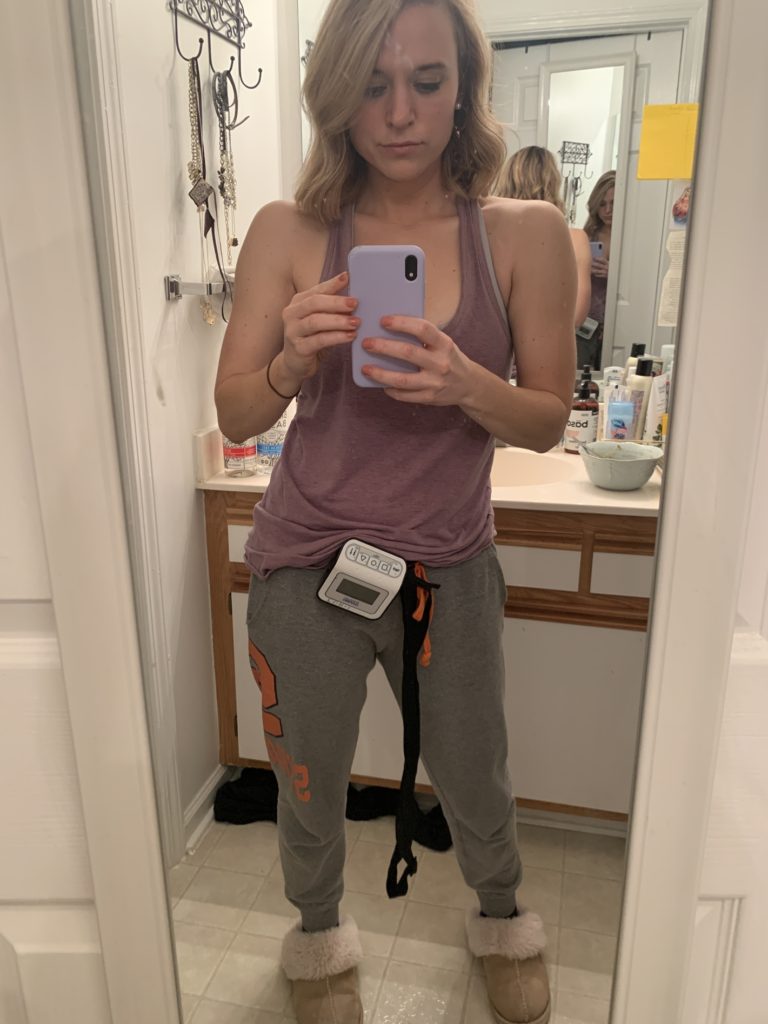
The final answer: An astronomical amount (in the words of my doctor). Needless to say, I wasn’t surprised.
SIBO, yup, another acronym
Simultaneously, I was also continuing to struggle with bloating, gas, and IBS (I promise there is a happy ending to this story). I was tired of hearing, “It’s just stress,” from other doctors, and I’d heard great things about a functional doctor here in Charlotte, NC who does great work, especially with GI issues. So, I bit the bullet, and laid out all the issues I was having.
“I think you might have SIBO,” she said. “Small intestinal bacterial overgrowth. Studies have shown that extensive use of PPI’s leads to SIBO. Essentially, decreased acid production, which is a goal of PPI’s, can lead to an overgrowth of bacteria in the small intestine.”
I was stunned. So, not only was I struggling with acid reflux, the measures that I was using were causing OTHER issues.
Not to mention, ALL of this – the acid reflux and the SIBO – made it very hard to run, especially long runs. And being unable to run made me feel all sorts of things, like inadequate, anxious, and sad.
The doctor ran blood work (to further check for food sensitivities) and had me do a SIBO test. My food sensitivities were minimal, but I absolutely had SIBO. Thankfully, it was a quick fix with a round of specific antibiotics.
Unfortunately, the acid reflux continued after the SIBO was cleared up.
Manometry
After the results came back from my Bravo pH test, my doctor said, “Okay, you are young. You are healthy. It makes sense at this point to consider surgery for your acid reflux. I don’t want you to be on medicine for the rest of your life.”
Praise be.
The next step was an esophageal manometry. An esophageal manometry measures the strength of your esophagus when you swallow. I needed to get this test done to make sure my esophagus was strong enough to push food through the “one way valve” that the surgery would create.
And it was, which meant I was a good fit for surgery. So, I was then sent to one of the top GI surgeons here in Charlotte, and we moved forward with scheduling the surgery.
Honestly, it all moved so fast, especially during 2020, which as we all know has been a wild year.
Nissen Fundoplication
The surgery I was scheduled to undergo is called a Nissen Fundoplication. Essentially, they pull your esophagus further into your stomach and then wrap a part of your stomach around the esophagus tightening the sphincter and creating a one way valve. Food can pass through, but neither food nor acid can easily come back up.
My sweet parents came into town the night before surgery so that they could take care of me post-op. (I may be almost 30, but I still need my momma to take care of me when I’m sick.) I was very nervous. Needles and blood and all that stuff makes me queasy.
The morning of surgery, mom and I got to the hospital at 4 am. I got all checked in, waited in pre-op, and then at 7 am they rolled me in and the next thing I knew I was in post-op with a catheter in and all drugged up.
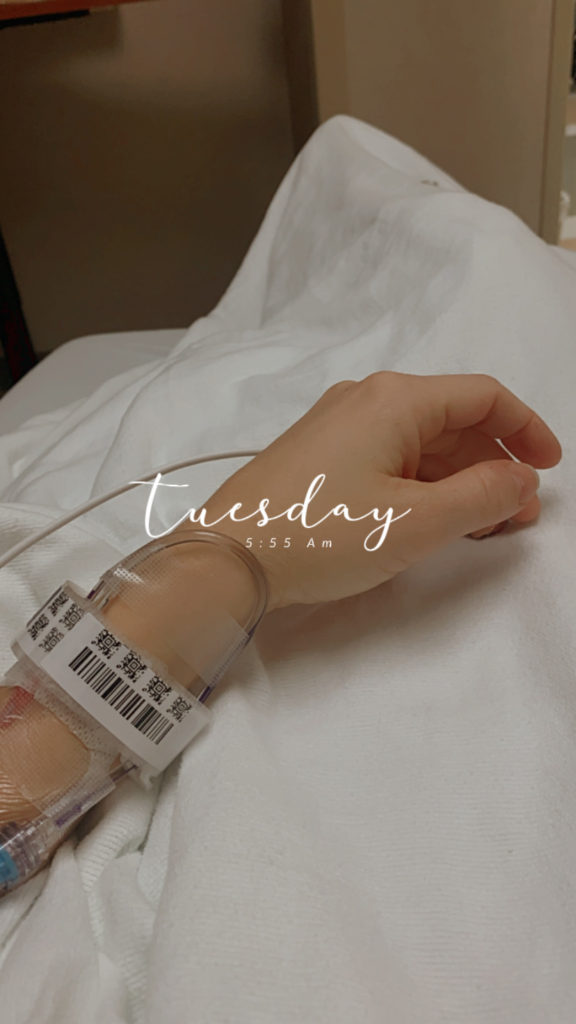
Side note: Going under without a catheter and waking up to a catheter is the most odd experience. I will never forget it.
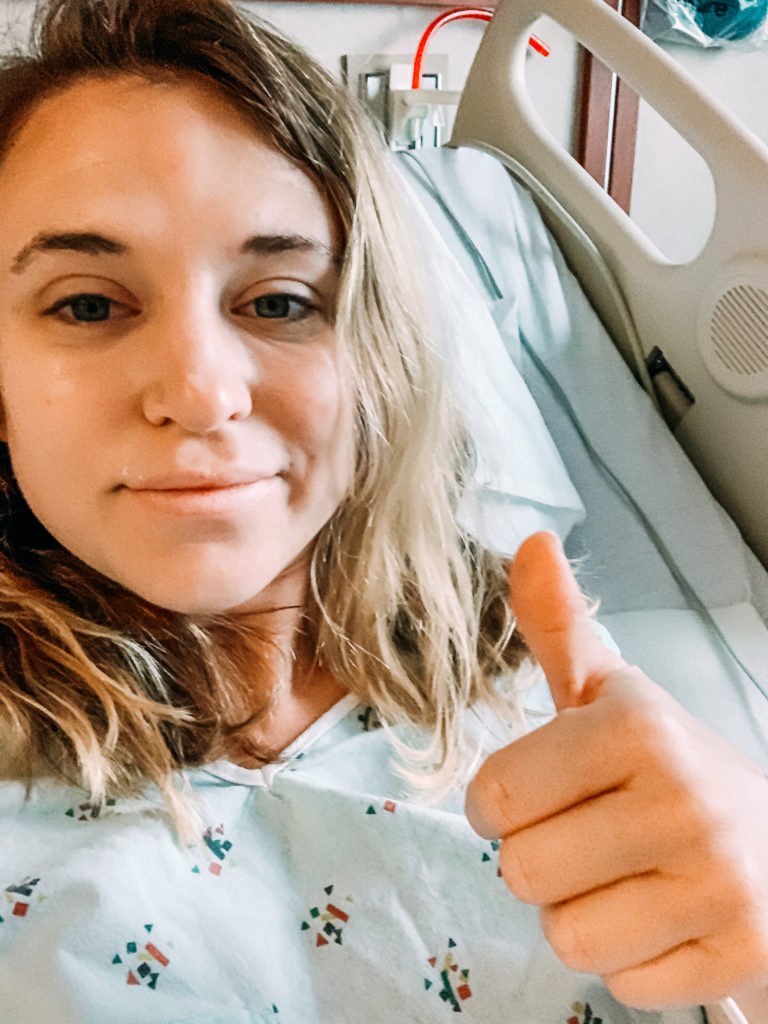
My surgeon said that the surgery went extremely well, and even called it “pretty” because there was hardly any blood. I stayed in the hospital overnight and continued to be poked and prodded with shots and all that stuff. But I was so drugged up, I hardly even cared. Mom had to leave at 8 pm (because of COVID visiting hours), but was back by 8 am to take me home.
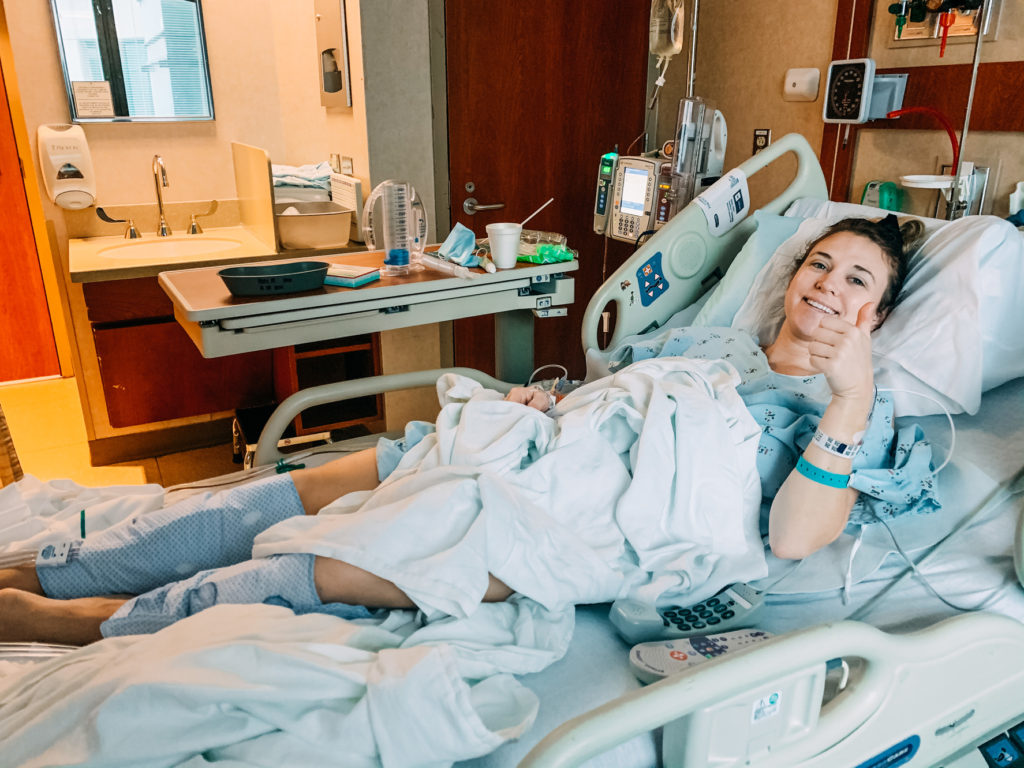
Post-op Recovery
To this day, I’m 3 weeks post-op. My recovery has gone really well. Because my stomach is smaller, and because it is healing, I can’t eat nearly as much as I used to, so I am tired quite often and have to take things slow.
The first week, I was taking the pain meds they gave me, because of pain in my diaphragm where they made the incisions. After that first week, though, all I needed was extra strength Tylenol and I haven’t needed it much the past few days. I also have a lot of gas build up, so I have to take GasX and then Miralax (sorry for the TMI, but this is reality, y’all). The gas build up can be very painful, but it typically only happens when I’ve done too much throughout the day and have not rested.
I have 5 tiny incisions that are healing really nicely. I’ve been putting Vitamin E on them every single day, and after a few months, I believe they’ll hardly be noticeable.
And… drumroll please…
I don’t have any acid reflux!
Of course, I am still healing and still have a ways to go before I get back to my previous level of energy, but God is so good. Modern medicine is amazing. And I’m already feeling SO MUCH better.
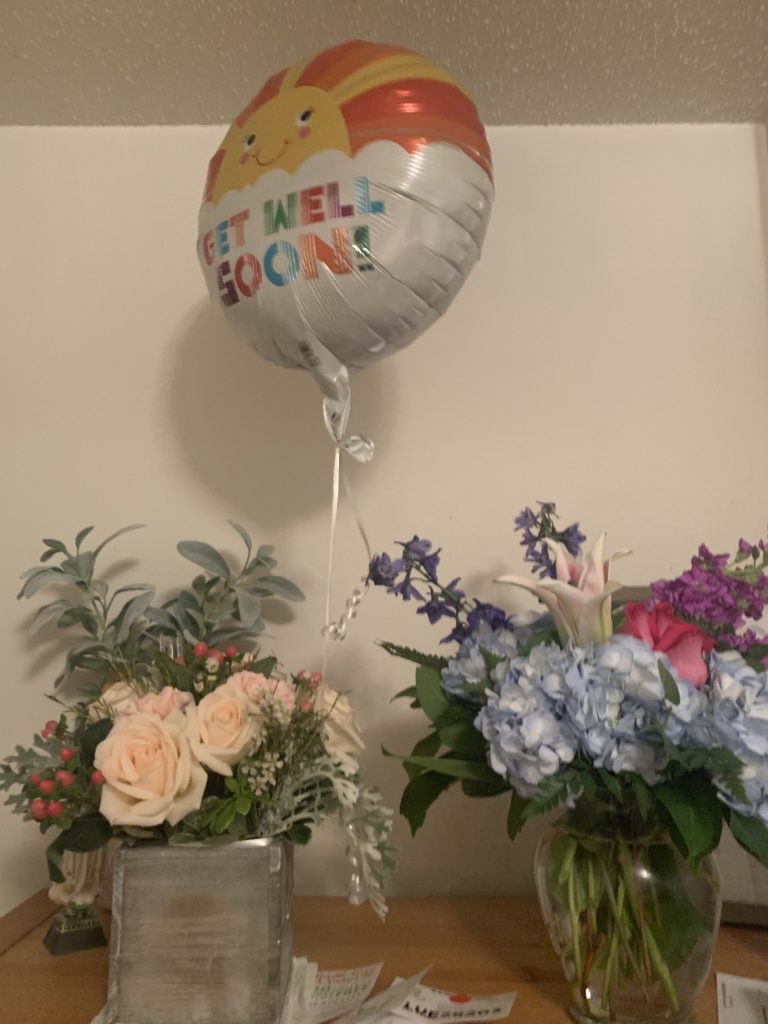
Parting words…
All in all, I’m so happy I got surgery to fix this issue. This was a long and painful journey for me, but I’m so grateful for every step.
I completely understand that I have been afforded things (like good health insurance and a job that pays me well) that assisted in getting the help I need. And I understand that not everyone has these resources available. My journey will not be the same as your journey, nor will it be exactly what’s needed for you too. That will be between you and your doctor and surgery isn’t an option for everyone. This is major surgery and surgery isn’t always the best option depending on your health.
I also understand that this blog post (albeit long) is a condensed version of all the years of pain, questions, lack of answers, answers, ups and downs, and it may look like the journey was seamless. It wasn’t. It took time, appointments, and lots of prayers.
With all of that being said, everyone is different and there ARE things you can do on your own that help. First, there are Facebook support groups for GERD and for those getting or thinking about getting the Nissen Fundoplication. It always helps to know you’re not alone. Second, medication DOES work for A LOT of people. I always say, do as your doctor says. This blog post is only MY personal experience. Third, diet, exercise, and stress levels can all play a part in helping your body and overcoming acid reflux. The Acid Reflux Diet, while restrictive, is a very helpful diet for many people.
Seek help from your doctor. Get second opinions. Advocate for yourself. And if you have questions on my personal experience, feel free to email me at maria@runningmyselftogether.com.
Products I mentioned (these are affiliate links, which means I get a kick back).
